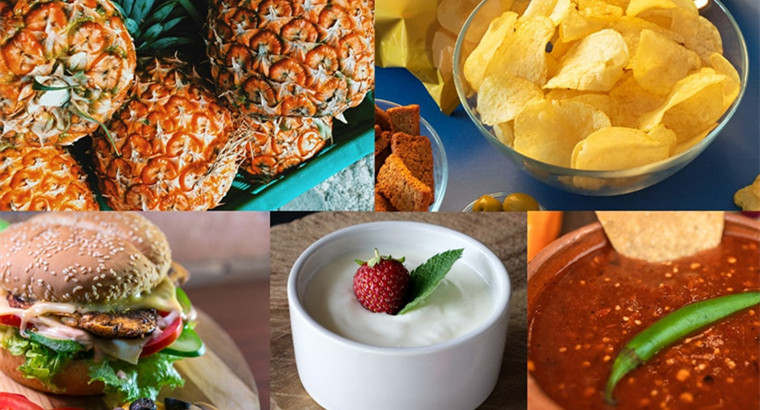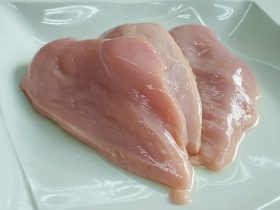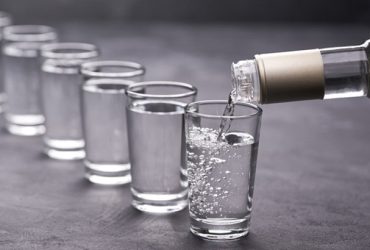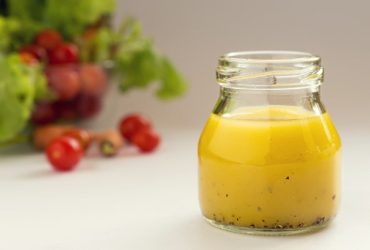Canker sores aren’t pleasant. They are very painful and often make it unbearable to eat, drink, or even talk. Unfortunately, it can be hard to figure out what exactly is causing them.
Food is one of the most common causes of canker sores, and also the easiest problem to avoid. If you think food may be causing you to have a canker sore, this article includes 34 foods that cause canker sores most commonly, as well as how to reduce your chances of getting a canker sore.
What Is a Canker Sore?
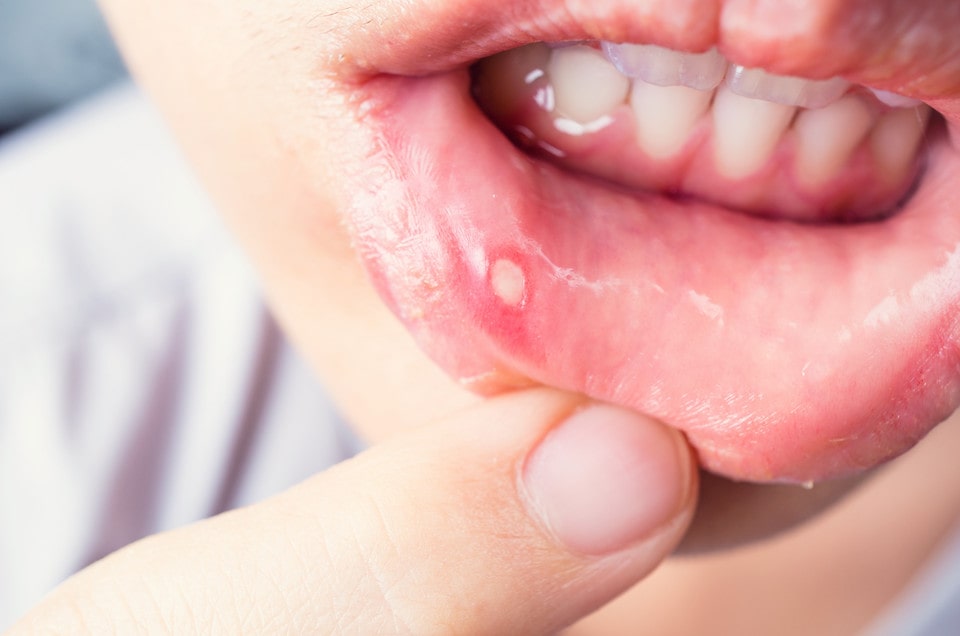
A canker sore is essentially a blister in your mouth. They can be caused by a variety of reasons. They are often found inside the mouth, instead of on the outside, such as on the lips. They are one of the most common kinds of mouth ulcers and they are often very painful.
Unlike some other mouth sores, canker sores can’t be transmitted from one person to another. They usually heal on their own as well and can take anywhere between one to six weeks to heal.
Many different sores can occur in the mouth, and canker sores are just one of them, so it is important to understand the causes and the appearance of these sores to make sure that is what you have.
If you do get a canker sore, there are some ways you can treat it at home, such as:
• Salt Water Rinses
• Sodium Bicarbonate Rinses
• Numbing Agents
• Antiseptic Mouthwash
• Over-the-Counter Pain Medication
Causes of Canker Sores
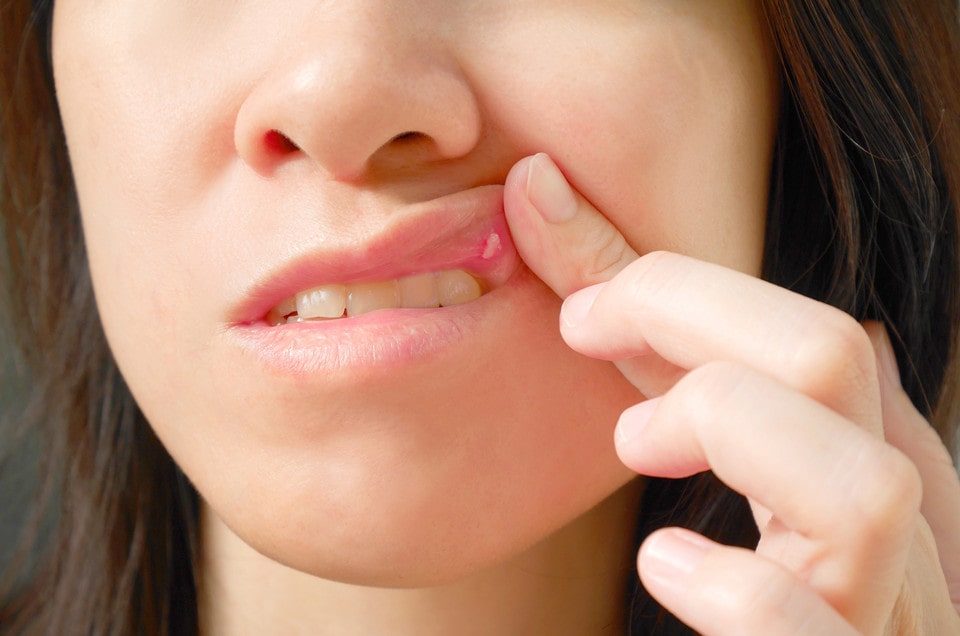
• Certain Drinks – Acidic or alcoholic drinks are common reasons why people get mouth sores. They can harm the inside of your mouth, making it more susceptible to canker sores. Coffee is a common drink to avoid.
• Allergies or Intolerances – If you continuously eat foods you are intolerant or mildly allergic to, you may find yourself with ulcers. Problems like Celiac disease can also cause problems like canker sores.
• Certain Foods – Some foods tend to trigger canker sores more often than others. While eating these foods doesn’t trigger canker sores for everyone in the population, people susceptible to mouth sores may find that some foods can set them off.
• Mouth Injuries – Mouth injuries like biting your cheek while eating, brushing too much, damage from sports or being hit, or dental work can all cause canker sores.
• Stress – Stress can impact your body in a variety of ways. Some people get sick more often, and others get brain fog, but ulcers and mouth sores are also common for people under a lot of pressure and stress.
• Lack of Vitamins – Certain vitamin deficiencies can cause canker sores. The most common ones are B vitamins (specifically B-12), folic acid, and iron.
• Sodium Lauryl Sulfate – Some mouthwashes and toothpastes have been found to lead to more canker sores than others. Such products contain an ingredient called sodium lauryl sulfate.
• Hormonal Changes – This is especially common for women. During hormonal changes such as during menstruation or menopause, you may find yourself having times when you get more ulcers than others.
• Immunocompromised Systems – If you have AIDS/HIV or something like cancer or lupus where you are immunocompromised, you may naturally develop canker sores as one of the symptoms.
• Inflammatory Diseases – Diseases like Crohn’s or Behcet’s that cause inflammation can also cause swelling and inflammation of the mouth, which can appear as canker sores, or may make you more likely to cause a minor injury in your mouth such as biting your cheek.
• Bacteria – Some bacteria are known to cause ulcers, such as Helicobacter pylori. If this bacteria is in your mouth, you may be more likely to get ulcers.
Different Kinds of Canker Sores
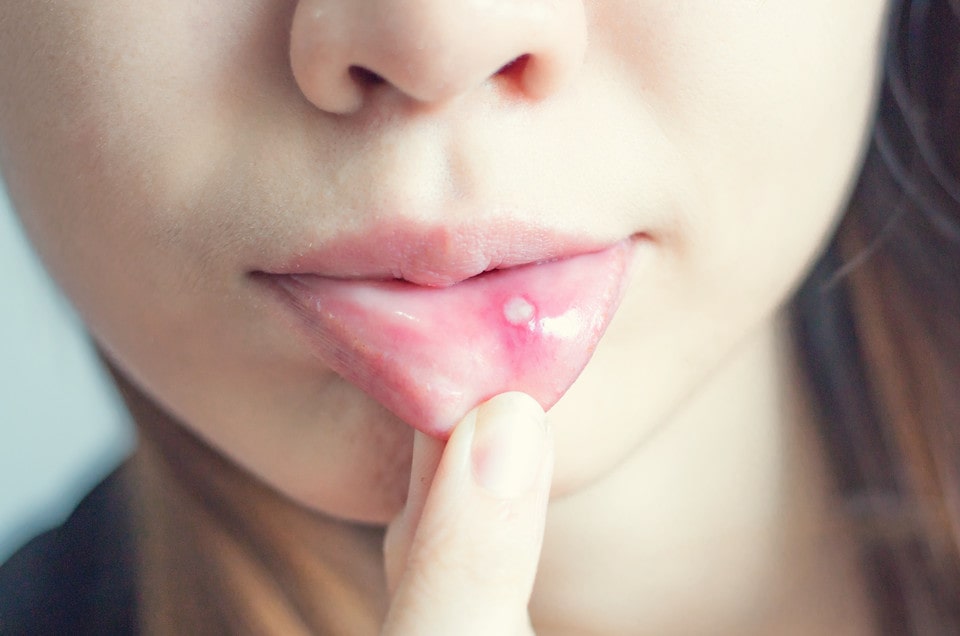
There are three main kinds of canker sores. These are minor, major, and Herpetiform canker sores. Each one has slightly different symptoms. However, they all have basic symptoms.
These are:
• Localized burning or tingling
• Often occur under or on the tongue, or the lip, cheek, and gums
• Painful, especially during activities like eating, drinking, and talking
• Sores usually are yellow, gray, or white with a raised border
Minor Canker Sores
Minor canker sores usually are pretty small. These are the most common, making up about 80% of canker sores. They form in the shape of an oval, and sometimes have a reddish outline around them. They are usually somewhere between ⅓ and ½ of an inch in size.
These are considered minor due to their size and the fact that they can heal up on their own, usually in about two weeks. They rarely leave scars behind. They can be painful but can be controlled with basic pain medication.
They do occur randomly, but can also occur after you have a small mouth injury or are stressed and tired.
Major Canker Sores
Major canker sores are a little less common, accounting for around 15% of all canker sores. These can be very painful and are usually large and deep. They are often around ½ inch at a minimum.
They often have a well-defined shape and may get a colored border like with minor canker sores, but sometimes, if they are very large, they can have jagged edges.
These take between a month to two months to heal on average and do occasionally leave behind scarring.
These are most common in immunosuppressed populations such as those undergoing chemotherapy or those with HIV.
Herpetiform Canker Sores
These are very uncommon, and don’t often occur until one is older, and account for about 5% of all canker sores. Despite the way their name sounds and the way the sores look, these aren’t caused by herpes.
The Herpetiform canker sores are often made up of a bunch of smaller sores. The sores themselves are often tiny, usually the size of a needle, but bunch up together, so it may feel like you have one very large canker sore.
These sores can often bunch up in anywhere between ten and 100 sores. Since it is made up of many different sores, they often don’t have even, rounded edges. Instead, they are irregular in shape and size.
Though these sound bad, they heal up similarly to minor canker sores, with healing in one or two weeks and little to no scarring.
34 Foods That Cause Canker Sores
Acidic Foods
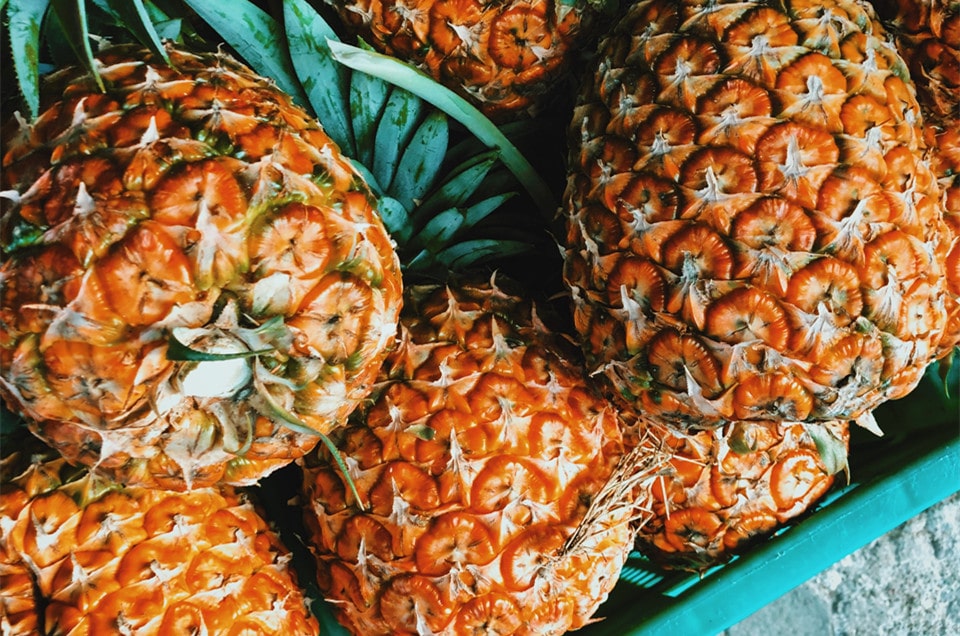
Acidic foods are a huge cause of canker sores and can make the situation worse. All acidic foods are good to avoid, but especially acidic fruits. Citrus fruits are a big one to avoid, but there are plenty of others as well, including:
1. Bananas, especially unripened ones
2. Pineapples
3. Tomatoes
4. Oranges
5. Limes
6. Some apples
7. Grapefruits
8. Figs
9. Strawberries
10. Chocolate
11. Soda
12. Sour candies
13. Vinegar
Salty Foods
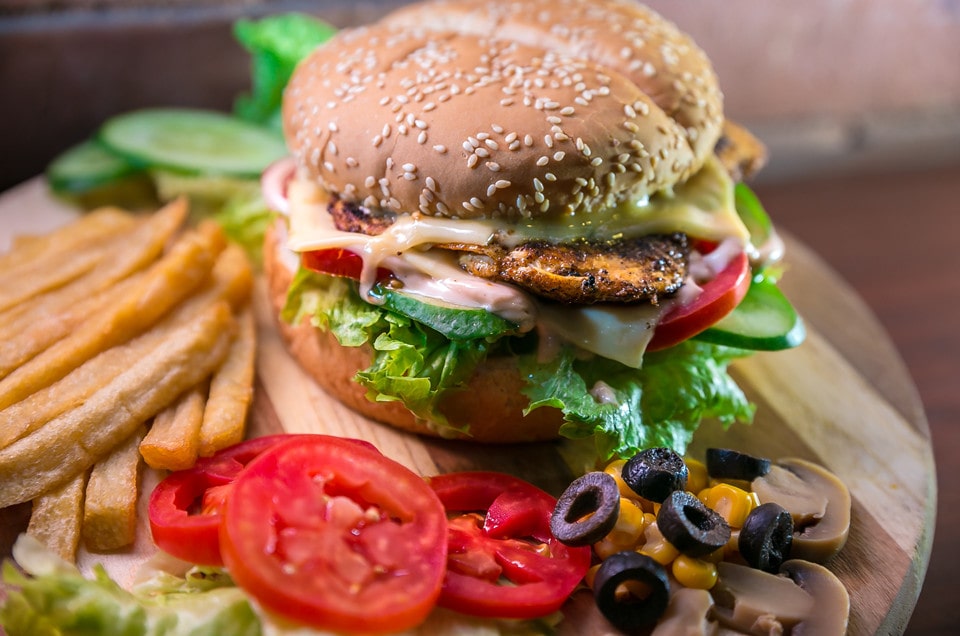
Salt is both abrasive and irritating to the mouth. It can cause further pain in canker sores already present but also has a higher chance of causing canker sores, especially if some of the salt gets stuck beside your gums or under your tongue.
14. Heavily processed foods
15. Potato chips
16. French fries
17. Fast food
18. Salted nuts
Spicy Foods
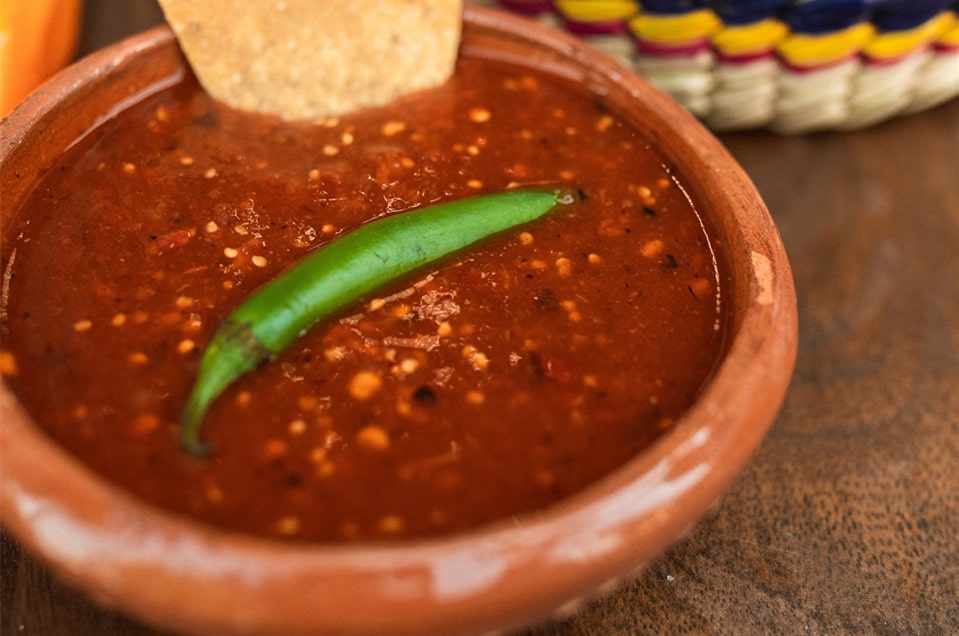
Spice can irritate your mouth, and make sores more common. If you eat a lot of spicy food it is a good idea to try and dial down the spice a little and see if that helps.
19. Curry
20. Chili peppers
21. Hot sauce
22. Jalapenos
Foods That Have Crunch
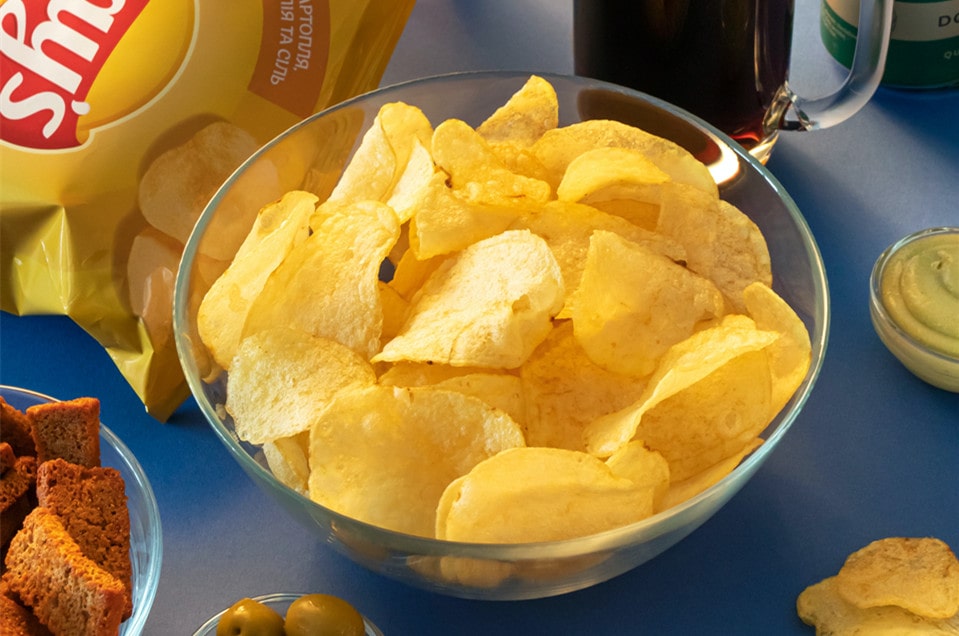
Foods that are hard, abrasive, or can easily increase the chances of you biting your tongue or cheek can also easily cause canker sores. Some examples are:
23. Hard pretzels
24. Crusty bread
25. Chips
26. Nuts
27. Raw vegetables
28. Toast
Dairy
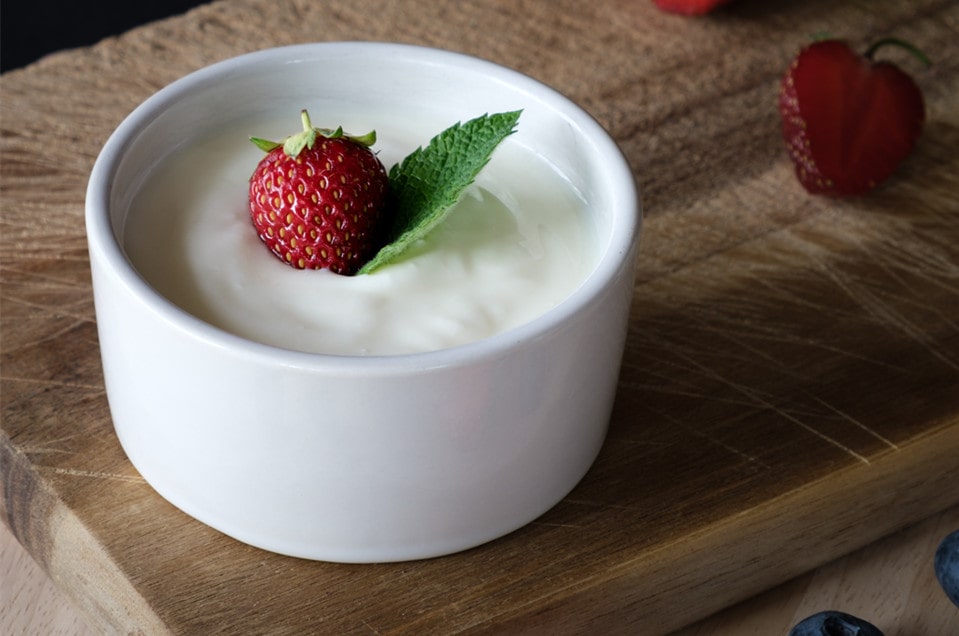
Some doctors have started to do research on the ingredients in the milk from cows. Some of these proteins have seemed to lead to higher instances of mouth ulcers.
So avoiding dairy for a while may help reduce your chances of mouth ulcers. While all dairy is a good idea to avoid, it is worth avoiding cow milk in particular.
29. Cheese
30. Milk
31. Creamer
32. Yogurt
33. Sour cream
34. Cream cheese
Best Practices to Avoid Canker Sores
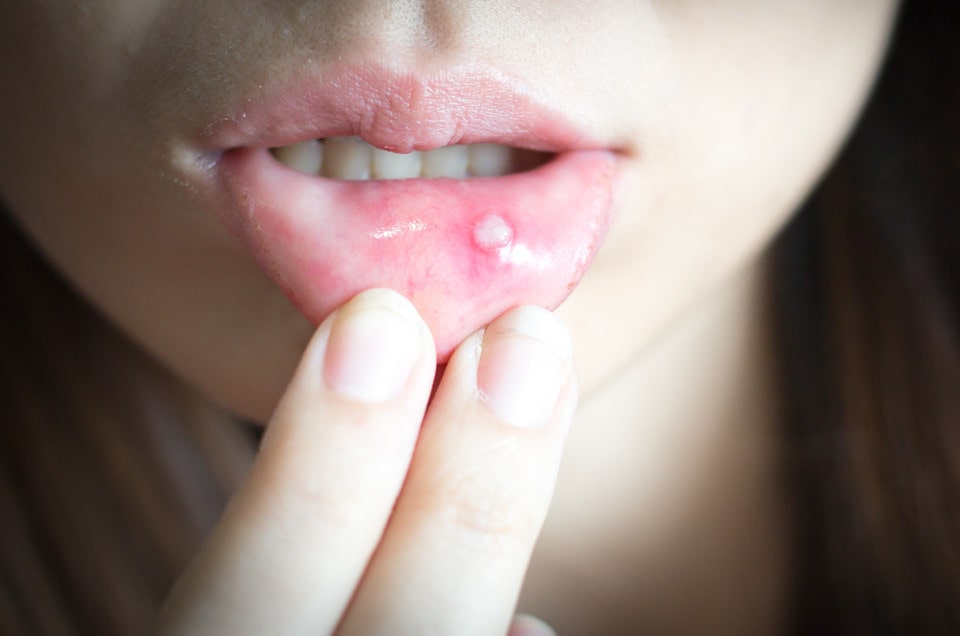
To avoid canker sores, it is best to treat the underlying problem. This means you may have to avoid certain foods or drinks for a while. It isn’t always easy to figure out exactly what food is the problem.
The best way to tell is to do an elimination diet. This is where you eliminate certain foods at a time to see what is causing the problem. This is common for determining if food allergies are present or if you have an intolerance to foods as well.
Treating underlying problems also includes things like reducing your stress and flare-ups of certain health conditions as much as possible.
You can also make a big step towards reducing canker sores by making sure your mouth is taken care of. This means if you have damaged teeth or dentures that fit improperly, you can make an effort to fix them.
When to See the Doctor
Canker sores are fairly common, and for the most part, you can let them heal up on their own without having to go to a doctor. However, sometimes, the situation can get serious or life-threatening. When that happens, it is a good idea to go and see a doctor.
Some signs that a doctor may be needed are:
• Pain that medication can’t relieve
• Sores that occur over and over
• Multiple sores that appear before others can heal
• Sores that last for a long time
• Sores appearing on the lips
• A fever occurring alongside the sores
• The pain or discomfort is so bad that you have a hard time eating or drinking.
• The canker sores seem excessively large


